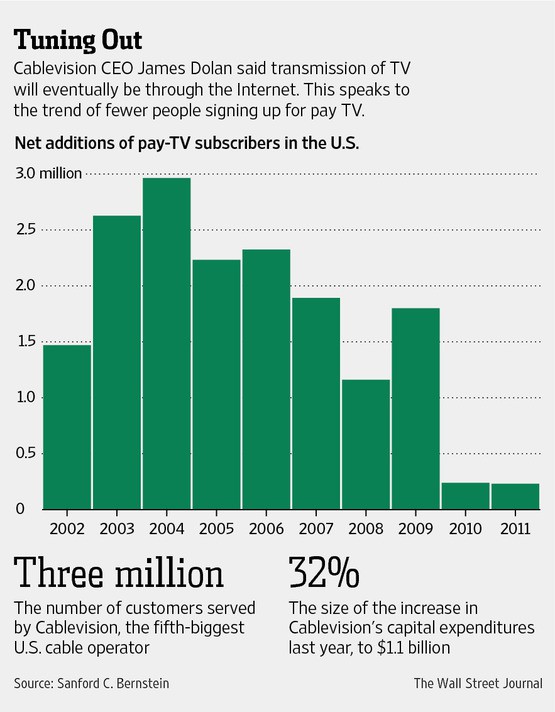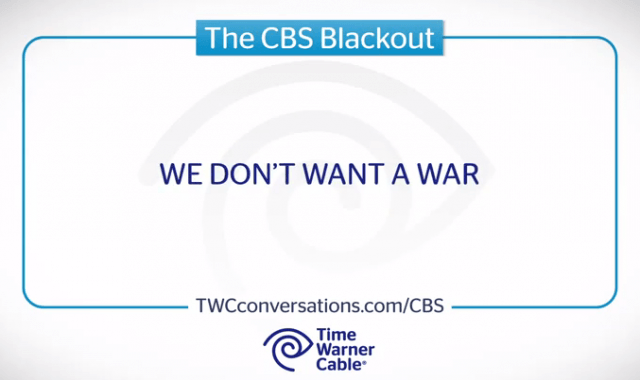 The average owner of a large home that wants an alarm system, the ability to observe everything indoors and out, and remotely control doors, thermostats and electric outlets will pay AT&T $1,740 in installation fees and a recurring monthly charge of $69.95 a month for deluxe peace of mind.
The average owner of a large home that wants an alarm system, the ability to observe everything indoors and out, and remotely control doors, thermostats and electric outlets will pay AT&T $1,740 in installation fees and a recurring monthly charge of $69.95 a month for deluxe peace of mind.
AT&T’s “Digital Life” service, available in U-verse equipped areas, is just the latest revenue-booster for the telephone company. The new service will compete directly against similar offerings from cable operators and traditional home security vendors including ADT.
AT&T can claim some superiority for its offering, because it offers water damage sensors most others don’t. That add-on can detect a basement water heater on the way out or give an early warning of a sewer backup.
AT&T’s deluxe offer — headlined above — includes the water control add-on, three indoor pan-and-scan cameras, one outdoor security camera, sensors for six windows and a variety of home automation features. For the middle class, AT&T offers less tony packages, letting customers customize features most valuable to them.
Home security and automation is a growth industry, particularly since the cable and phone companies have gotten into the act. The Boston Herald reports 90 million homes worldwide will have some form of home automation system in place by 2017.
Although home security systems have been available for years, they require separate contracts, installation, and monitoring from alarm providers most Americans are barely familiar with. The cable and phone companies hope their packages, offered as “add-ons,” will attract more customers that would not normally consider a home security system. Maintaining broadband service is also often a prerequisite for the cable/telephone company systems. As customers are already accustomed to seeing the cable or phone guy and a large, multi-product monthly telecommunications bill, adding another service like home automation and monitoring is not a big stretch.
“Offering security services in the past was basically a separate offering,” said Mitchell Christopher, vice president of technical operations at Time Warner Cable. “Security wasn’t tied to the existing products or network. With the new products we have now, it is fully integrated into our existing network. It is just an extension of what we are doing versus a departure.”
Unlike traditional intrusion alarms, services like AT&T’s “Digital Life” promote home automation and monitoring features above basic home security.
A few real life-examples: Turn on the lights and unlock your front door when you see your cleaning crew arrive. Lock it behind them when they leave — no need to give them a key. Set programs that make life easier, such as one that triggers your back door to open and your kitchen lights to turn on when your garage door opens each night as you arrive home. View a log of each time your front door has opened or closed to know whether your child has kept his or her word about staying in to do homework. Simply press a button on your smartphone or tablet for “police” or “fire” in the event of an emergency. Be alerted if the service detects a water leak, smoke or carbon monoxide. And if a leak is detected, have the water supply cut automatically.
[flv width=”640″ height=”380″]http://www.phillipdampier.com/video/ATT Digital Life 8-2013.flv[/flv]
AT&T produced this introductory video for its Digital Life home security and automation suite. The most basic home security packages start at $150 for equipment and $30 a month with a 2-year contract. (1 minute)


 Subscribe
Subscribe



 Cablevision may eventually get out of the cable television business.
Cablevision may eventually get out of the cable television business.
 Existing customers like the changes, but don’t appreciate the price hikes that have accompanied them. Wall Street has the exact opposite point of view, welcoming increased revenue from rate hikes, but concerned about the company’s spending. Investors complain Cablevision’s returns are well below those of other cable operators which don’t face the Verizon FiOS juggernaut.
Existing customers like the changes, but don’t appreciate the price hikes that have accompanied them. Wall Street has the exact opposite point of view, welcoming increased revenue from rate hikes, but concerned about the company’s spending. Investors complain Cablevision’s returns are well below those of other cable operators which don’t face the Verizon FiOS juggernaut. CBS has blocked Time Warner Cable and Bright House Networks’ broadband customers from watching CBS online video in a retaliatory move against Time Warner Cable’s decision to pull CBS-owned programming off the lineup because of a contract dispute.
CBS has blocked Time Warner Cable and Bright House Networks’ broadband customers from watching CBS online video in a retaliatory move against Time Warner Cable’s decision to pull CBS-owned programming off the lineup because of a contract dispute. “CBS has shown utter lack of regard for consumers by blocking Time Warner Cable’s customers, including our high-speed data only customers, from accessing their shows on their free website,” the company said in a statement. “CBS enjoys the privilege of using public owned airwaves to deliver their programming – they should not be allowed to abuse that privilege.”
“CBS has shown utter lack of regard for consumers by blocking Time Warner Cable’s customers, including our high-speed data only customers, from accessing their shows on their free website,” the company said in a statement. “CBS enjoys the privilege of using public owned airwaves to deliver their programming – they should not be allowed to abuse that privilege.”